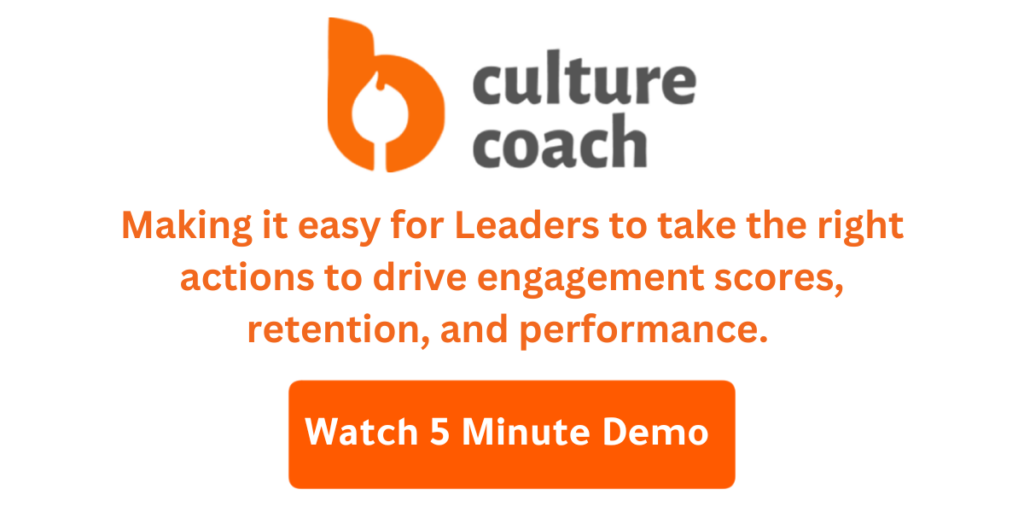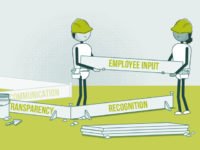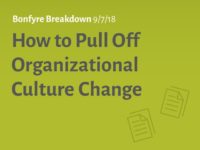Employees are the drivers of company culture at DairiConcepts, an international provider of dairy-based food ingredients, and it’s Kris Jones’ job to support that culture with hires who thrive in an environment of empowerment, innovation, and collaboration.
As the Senior Manager of Talent Management, Jones’ role at DairiConcepts touches on everything from recruitment and onboarding to training and development to employee relations. In this installment of Around the Bonfyre, we sat down with Jones to discuss the importance of investing in employees, and how to improve company culture with a transition to employee-driven initiatives.
This interview has been edited and condensed for clarity.
On your LinkedIn profile you describe your personal career mission is to “serve others in a high-performing organization.” What does serving others in HR mean to you?
To me, serving others means partnering with them to help them accomplish their goals and objectives. At a higher level, it means helping the company achieve its objectives. Serving doesn’t come from a mindset of submissiveness, it’s a mindset of partnership.
Related: Learn how trust shapes employee engagement
What objectives do you help support?
At DairiConcepts, we deliver unique value to customers. We think of unique ways to use the farmers’ milk to create our products. That means we have to have an innovative and collaborative workforce. We make sure our products are developed through disciplined execution, which requires high talent. The third piece of that strategic mission is to build a high-performance culture. That’s where I come in. Preparing the organization for growth. Making sure employee engagement and development are aligned with that high-performance culture.
HR managers have different perspectives on what an engaged employee looks like. What do you define as employee engagement?
An engaged employee is someone who wants to give their best and is positioned to do so. They’re in the right role, and have all the resources they need to be innovative and deliver what the customer is looking for. Someone who gives their best and also goes a little bit further.
What role does HR play in delivering employee engagement?
It starts and ends with us. First, we have to identify the right people. Then, we need to give them the platform and resources they need. We need to be able to deliver on those things. If we’re finding the right people and developing them in the way that is meeting their needs and the business needs, it’s a win-win.
What challenges does someone in your position face when trying to provide the environment and resources you describe?
A big challenge is in finding the right people. Just looking at the low unemployment rate right now, we have to consider that the people we need are otherwise employed, and likely happily employed. We have to be more attractive to them than their current situation.
Besides low unemployment, what are other pressing issues facing the talent management specialization?
In our industry, we’re looking for a unique skillset, which makes it especially challenging. Because we’re in an innovative company, we’re looking for people who thrive in an environment of empowerment. An environment where they’re being asked to think of things others haven’t thought before to develop new products. I’m always impressed with the talent we’re able to bring into our company. We work with individuals here who have very specific skills and expertise with regard to flavors and processes that allow them to deliver unique solutions to our customers. It’s humbling to work with that level of talent.
What does DairiConcepts value in its culture and how do you support that?
We strive for a culture where ingenuity and integrity and collaboration rule the day. One thing we do that sets us apart from other organizations is that we trust employees. We set up a culture of trust and give our employees a lot of freedom. You have to do that if you’re going to compete in the marketplace today. The 1950s style of management is gone, and it should be gone. Employees are asking for something different in today’s workplace, so we’re doing our best to deliver on that.
What are employees asking for that’s different?
They’re looking for a place where their personal pursuits cross over into the business pursuits. Everything they’re doing day-to-day when they come to work is fulfilling to them because they’re not only meeting the needs of the business, but also their personal needs. Maybe they want to learn new skills, and here at DairiConcepts, that’s something we invest in. Employees can learn new things while they’re here doing their day-to-day job and help the business meet its needs.
So employee learning and development is a big priority for DairiConcepts.
We believe in investing in employees and helping them in all aspects of life. Total well-being is important to us. We do things like wellness lunches, where we bring in experts in areas of wellness to talk to employees about how they can be a better “you.” It’s an investment we’re making in people. We also do group learning where employees get together in areas of interest, and the company will invest in resources to help them learn in a particular area. They can do that with their chosen group of employees within the company. It’s a liberating type of environment where the company understands the benefit of making those investments.
Leaders oftentimes have difficulty seeing the benefit of company culture, but it sounds like you have a great leadership team who’s very onboard from a culture perspective. Was that always the case or was there some convincing that had to go on there?
Leaders at DairiConcepts have always wanted to do what’s right. Sometimes it’s difficult for HR or even outside resources to convince leaders that investing in culture is the right thing to do. We’ve been through an evolution. We’ve always been a learning organization. When you think of learning in the traditional sense, you think of student-teacher. We’ve modernized that approach here so that it’s an employee-driven approach. For example, an employee might say, “I want to sharpen my understanding of finance. I’ve found a podcast I think is helpful in this area.” The company says, “We’re going to invest and make sure you have access to that.”
At Bonfyre we’re all about employee-driven cultures, and having those open lines of communication that builds a better workplace. It sounds like employee feedback is a big part of your culture building as well.
It’s huge. We have traditional means of employee feedback, like a suggestion box and employee surveys. We also have asked employees to lead the way and be an authority on what they are looking for. We actually have a group of employees who are empowered to vet ideas and make decisions and recommendations about how our leaders can provide a culture that aligns the company’s mission with what employees want to see and feel day-to-day. It’s an employee engagement team that exists at each one of our locations.
Is there any one particular employee-driven component of your culture that’s your personal favorite at DairiConcepts?
I have to go back to the group learning. It started out as a student-teacher approach. We’ve asked employees to help us evolve past that and they’ve really taken hold of it. Employees are saying, “Not only am I willing to help you move past that, but consider buying audio books for people. Promote the use of podcasts and Ted Talks.” It’s one of my favorite things because it’s been really empowering for employees.
Having been through the transition to an employee-driven culture, what advice would you give to someone in HR who wants to make the shift but doesn’t know where to start?
I have a lot of empathy when it comes to other HR practitioners who want to move to that type of culture. I’ve been in organizations before where the leadership you have isn’t positioned to help you get there. I feel grateful to be part of a company now where leaders embrace those concepts. My advice for HR practitioners is that in order to get leaders to a place to where they’re willing to embrace these things, you have to provide evidence and research that shows what you’re proposing really works.
Do you have a way of measuring the impact of your employee-driven culture? Do you use technology and data tools?
We use an employee engagement survey to gauge our progress and we are very engaged in GlassDoor. We do pay attention to social media and our engagement on those platforms, such as on our company Facebook page, which we really only use for employer branding. We ask employees to check in at work on Facebook. It’s so funny when you first start working with employees who aren’t used to environments that welcome that. When you go, “Have you checked in on Facebook?” they go, “No of course not. I haven’t.” We chuckle and say, “No! We want you to! It’s funny.”
Do you have any parting thoughts before we end our interview?
I’ve been in HR for 20 years, and I’ve spent the majority of my career in healthcare, a field that’s a pretty traditional environment for HR practitioners up until now. I think your industry is a huge influence on what you’re able to do with your workplace culture, and more importantly your company leaders. Evidence is what speaks loudly to most individuals in senior/leader positions. For the things that we’re doing and are on the horizon for us, the evidence is out there. I would encourage other HR practitioners to seek out that evidence.



 6 min
6 min




